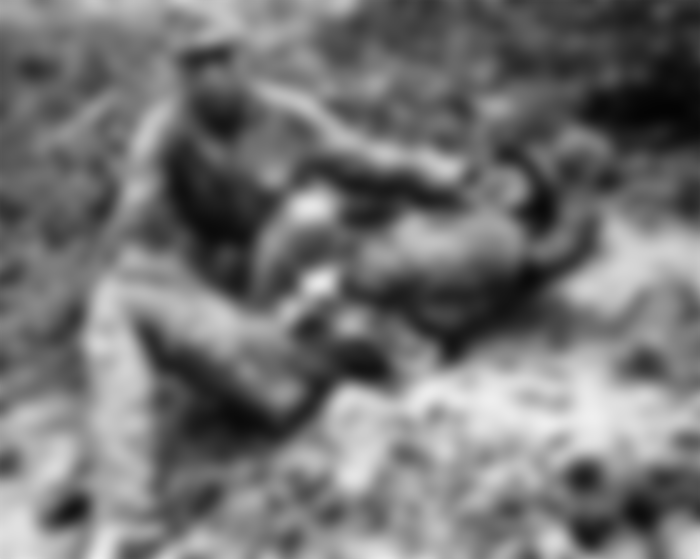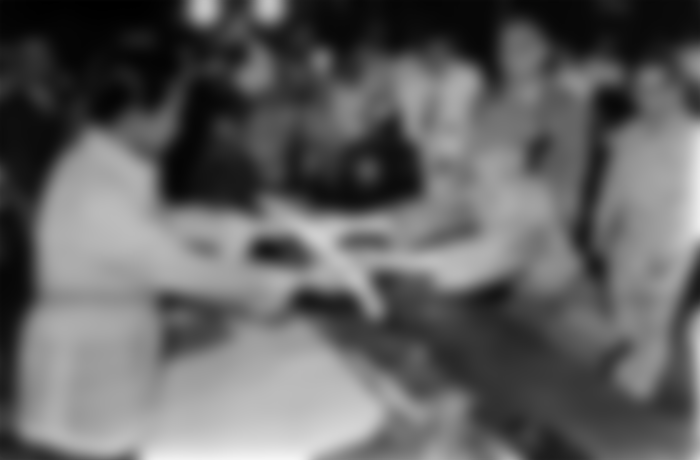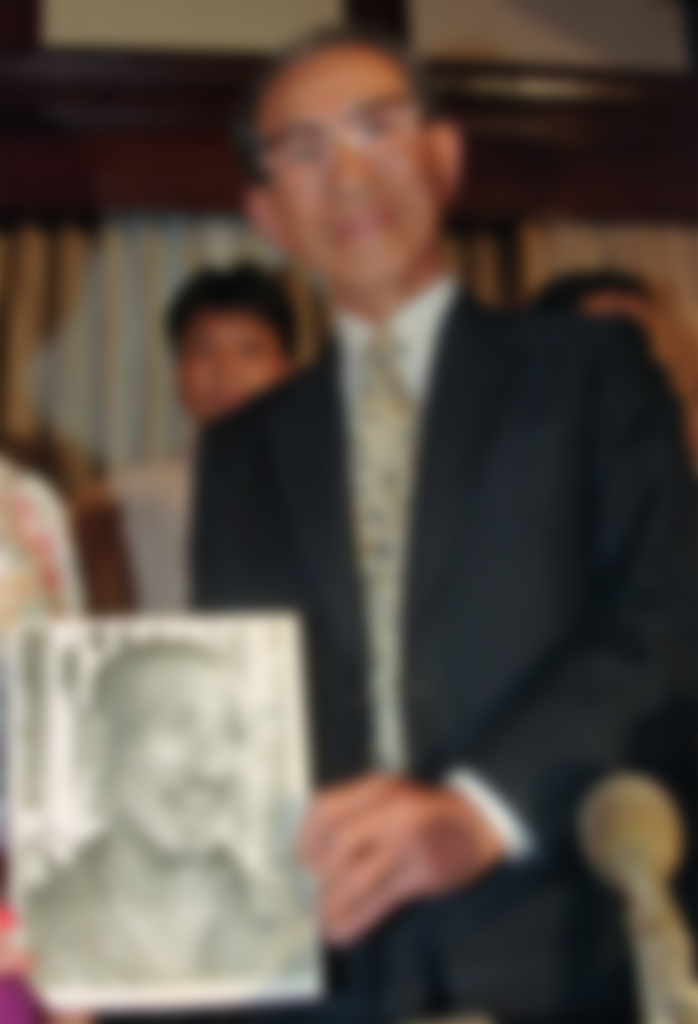
Hiroo Onoda, the man who fought World War II 30 years after it ended.
In 1945, Japanese Second Lieutenant Hiroo Onoda and a small squad of three men were the only survivors of an American invasion of Lubang Island in the Philippines during World War II.
Determined to carry out his orders to defend the island until his dying breath, Onoda continued to fight against the allies until 1974, 29 years after the Japanese surrendered. Living off the land and conducting guerrilla attacks against the local population, Onoda carried on fighting the Second World War three decades after it ended.
HIROO WAS SENT TO PREVENT AN AMERICAN INVASION
After being trained as an intelligence officer and commando, Onoda was assigned to Lubang Island in the Philippines to blow up a bunch of important targets to prevent American troops from establishing a foothold.
However, his orders were changed at the last minute. And the targets were left decidedly unexploded, allowing the Americans to easily invade Lubang in 1945. Resisting the urge to write, I told you so on his hand and slap each of his superior officers must have taken all of Onoda's willpower.
HIS ORDERS WERE TO DIE FIGHTING
As the war in the Pacific raged on, soldiers died all around Onoda until only he and three other men were left. Suddenly finding himself the highest ranking officer by process of literal elimination, he led his new squad up into the mountains to hide.
Under strict orders to never surrender or commit suicide, Onoda and his three men had to either repel the American and Filipino forces or die trying. They ran regular guerrilla attacks in order to try and get one of those two things to happen.
THOUGHT THE WAR'S END WAS PROPAGANDA
After Japan surrendered in September of 1945, news of the war's end reached the island. But Onoda and his men refused to believe it, thinking the newspapers they saw were calculated lies designed to trick them into coming out of hiding.
Onoda wasn't the only soldier to think this. There were stranded Japanese troops all over the Pacific who held out for a long time after the war was over. We're willing to bet Onoda is one of those guys who plays monopoly until losing his very last dollar at 3:00 in the morning.

HIS MEN DIED OR SURRENDERED?
Most of Onoda's men were just as dedicated as he was to continue fighting a war that was currently being taught in the history classes around the world. But they eventually fell off one by one until only he was left.
The first, Private Akatsu, surrendered to Filipinos authorities in 1950, a full five years after World War II had ended. Corporal Shimada was shot by a patrol out looking for Onoda and his men in 1954.
Private First Class Kozuka was killed by police while on a mission to burn local crop sin 1972 nearly two decades after the surrender. For perspective, Onoda and hismen hid out in the wilderness, fighting an imaginary war longer than the Beatles were together.
ONODA ATTACKED FILIPINO CITIZENS UNTIL THE 1970S
Onoda became something of a boogie man, regularly popping out of the jungle, like a predator, to attack farmers and police for decades.
He even cut one farmer's head off or basically no other reason than shock and awe. Onoda later justified his actions as standard war tactics for the conflict he believed was still raging on, saying, I materialized to destroy things, threatening them, lighting fires in empty houses.
HE SURVIVED ON FRUITS AND STOLEN COWS
Needless to say,Onoda and his men didn't have much in the way of standard supplies when they ran off into the jungle to fight World War II for 30 additional years. But they were well-trained survivalists.
They lived primarily of fruits and vegetables gathered from the wilderness and the occasional cow stolen from local farmers.
They built huts out of bamboo and maintained their weapons and uniforms as if they expected a superior officer to show up at any moment and conduct an inspection.
They absolutely refused to believe any information about the end of the war or the progression of the modern world. So presumably, Onoda and his men also thought the moon landing was a hoax.

HE BECAME AN URBAN LEGEND
Onoda had been declared dead by the Japanese government in 1959. But after PFC Kozuka Death in 1972, they were forced tour-evaluate that position.
The Japanese media took hold of the idea that Onoda might still be alive. And he became something of an urban myth.
In 1974, a young man named Norio Suzuki announced he was going on a quest to find Lieutenant Onoda, a panda, and the Abominable Snowman in that order.
Incredibly, Suzuki managed to find Onoda and managed to get Onoda to consider the idea that the war might actually be over.
Onoda agreed not to kill Suzuki, but insisted that he couldn't abandon his mission until he received an official order from his commander.
So Suzuki returned to Japan to find him. Suzuki's amazing luck held out. And he managed to locate and notice former commander, Major Taniguchi Working in a bookstore.
Together with Suzuki and Onoda's brother, Taniguchi went to Lubang Island to tell Onoda to hang it up.
At first, Onoda thought the whole thing was another elaborate trick and waited intently for Taniguchi to slide him some kind of secret message, letting him know that the war was still being fought.
When it became apparent that no such message was coming that Taniguchi's order to surrender was legit and that the war had ended 29 years ago, Onoda blacked out.All things considered,he took it pretty well.

ONODA OFFERED HIS SWORD TO THE FILIPINO PRESIDENT
Onoda's surrender looked like it might be a tricky thing, because he'd been essentially terrorizing the country for 30 years and had killed at least seven Filipino citizens. But president of the Philippines, wowed by Onoda's ironwill and tenacity, granted him a full pardon.
Onoda donned the uniform he'd kept in the jungle for 30 years and presented his sword to the president in person, who applauded Onoda's Courage and respectfully gave the sword back.

HE RETURNED TO JAPAN AS A NATIONAL HERO
Upon his return to Japan, Onoda was given a hero's welcome. He was flown home on a private flight, stepped out to a cheering crowd, including his parents and the daughter of Corporal Shimada, oneof Onoda's three troops who had been killed decades earlier.
The Japanese media adored Onoda, writing glowing headlines about his incredible story and holding him up as an inspirational symbol of duty for country to a generation that had grown decidedly more materialistic during the 30 years Onoda Was hiding out in the jungle.
He even wrote a book about his ordeal, titled, No Surrender, that should be requires for anyone who has ever complained about having to work overtime.
HE DISLIKED MODERN JAPAN AND MOVED TO BRAZIL
Onoda immediately found life in modern Japan overwhelming. Bear in mind, he had been living in the wilderness completely cut off from society for three decades. So he was essentially stepping out of a time machine 30 years into the future.
Rather than trying to figure out how to use a television, Onoda moved with his brother toa Japanese community in Brazil and became a cattle farmer,which was way more his speed. He even got married to a woman who taught ancient Japanese customs, because he was old school,extremely old school.
ONODA MOVED BACK TO JAPAN TO INSPIRE A NEW GENERATION
After hearing about a 19-year-old kid, who murdered his parents after failing to get into college, Onoda was horrified and moved back to Japan to start a camp to help inspire troubled children.
He felt the murder was a sign that the current generation was weak and lacked confidence, which is a skill he felt he could teach, because you don't spend 30 years fighting a war alone in the wilderness if you don't believe in yourself.
The camp was called Onoda Nature Camp. And he taught his campers the survivalist skills he'd use to stay alive while hiding out in the Philippines all those years,believing the knowledge would empower them and boost their confidence.
He also started lecturing at schools and universities about his experience,imparting his philosophy that nature was the key to finding your purpose in life.

ONODA REFUSED ALL BACK PAY & DONATIONS
Onoda was given a full military pension and made a decent amount of royalties from his book. But he refused to accept the 29 years of back pay technically owed him by the government.
People would send him private donations that he also refused, donating any money he couldn't return to a Shinto memorial shrine. Onoda finally passed away in 2014.
Hiroo Onoda took his duty as a soldier so seriously that he refused to believe World War II was over until he heard it from the mouth of his commanding officer 29 years later.






If you read his book, he is honest enough to admit that he had been a fool the entire time. It takes a real man to admit that.
Fun fact: Onoda and his gang had a stolen radio. It worked and they ocasionally listened to japanese broadcasts and shows. They even heard about the surrendering but rather believed it to be propaganda broadcasted by the enemy.